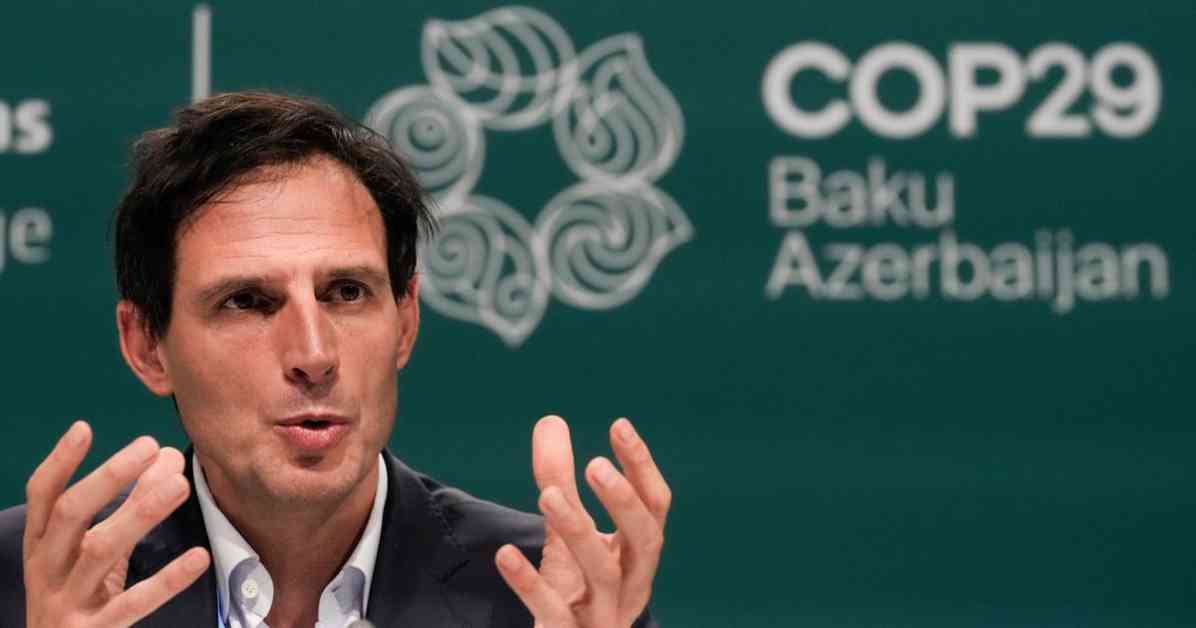The UK government is urging countries to continue supporting the global agreement to move away from fossil fuels, despite a significant divide emerging at the Cop29 conference in Baku, Azerbaijan. The latest proposals on a global agreement at the UN climate conference presented two conflicting options on climate finance for poorer countries and lacked specifics on addressing global warming. This led to widespread condemnation from both developing and developed nations at the negotiations.
Countries like the UK, EU, Australia, and New Zealand are pushing for a deal that builds on last year’s agreement to phase out fossil fuels. However, oil-rich nations such as Saudi Arabia have been resisting this effort. The UK has been advocating for countries to incorporate the landmark Cop28 agreement into their national climate action plans, known as Nationally Determined Contributions (NDCs).
During a press conference, UK climate envoy Rachel Kyte emphasized the importance of not regressing from the agreements made at Cop28 and urged countries to collectively move forward in implementing these commitments. The EU echoed similar sentiments, with the European Commissioner for Climate Action stating that the current proposals are unacceptable and do not fulfill the promises made at previous climate conferences.
Campaigners have expressed disappointment over the lack of ambition in the negotiations, particularly regarding the fossil fuel phase-out agreement. Concerns have been mounting following the recent G20 summit, where leaders did not directly address the issue in their communique. A significant divide has emerged between industrialized and developing nations over finance, with economists stressing the need for one trillion US dollars to flow into developing countries by 2030 to meet the Paris Agreement goals.
Developing nations are advocating for developed countries to contribute one trillion dollars annually from 2025, with the option for richer developing nations to add to that amount. In contrast, the alternative proposal suggests richer nations paying trillions in various forms of finance annually from 2035. The diverging positions on finance have created challenges in reaching a consensus at Cop29.
Campaigners at the conference have highlighted the importance of setting ambitious finance goals to facilitate the transition away from fossil fuels. The UK, along with Brazil, has been engaging in consultations to gather input from parties on achieving a balanced final agreement on finance, mitigation, and adaptation. The goal is to inform the ongoing discussions and work towards a compromise that addresses the concerns of all countries involved.












